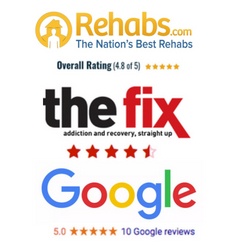How We're Different:
Healing Underlying Core Issues

At The Clearing, we consider 'underlying core issues' to represent the point in time where an event, person or experience caused us distress.
From this point, we consciously or subconsciously began relating to the situation in unhealthy ways.
Often, over time, our response intensified to the point we become significantly 'out of our center' in relationship to it. Among the vast external ways it may manifest, being 'out of our center' may show up by using a substance to de-intensify our emotions, feeling increased anger, irritation and frustration, or in contrast, experiences of hopelessness, lethargy and the desire to isolate.
It may also show up as a lack of confidence and self-worth, changing relationships with friends and loved ones, even loosing our desire to live.
In the midst of overwhelming emotions we may feel we're fundamentally flawed, broken or lacking the inner ability to change our experience. However, when traced to their origin, our feelings and behaviors make perfect sense, are easy to understand and from there profound and complete healing is achievable.
Tracing issues to their core is the first step towards change
Each individual is unique and there’s no yardstick to measure 'trauma.'
Trauma may be as subtle as a painful playground encounter or as horrific as the outer boundaries we all recognize. Here, we don't judge. If it impacted your life, it's important to us and events across the scale may vastly impact your life in ways not obvious on the surface.
Trauma Examples Leading to Unresolved Issues
~ Imagine a small child, excitedly anticipating an outing for ice cream when he’s told the trip is suddenly canceled.
 Something happened the child wasn’t expecting.
Something happened the child wasn’t expecting.
The child cries, feels rejected, angry and abandoned, and is disappointed and frustrated the rest of the day.
What really happened?
Perhaps the parent had an unexpected situation at work which required their immediate attention, they wanted to go as well, but life intervened.
~ Imagine an adult, anticipating dinner and a movie with a friend when he learns the outing must be canceled.
Something happened the adult wasn’t expecting.
The adult feels rejected, hurt, unimportant and may feel sad and insecure the rest of the day.
What really happened?
Perhaps the friend's pet became ill and the priority became getting emergency veterinary care.
We can see the two responses are related.
The events are similar and my reaction as an adult is very similar to my reaction at a younger age; though I matured, my inner response to this kind of event didn’t mature with me and it’s causing problems in my life.
I need it to stop.
In these examples, we can see that a healthier response may be realizing something didn’t work out the way I expected, but I’m authentically comfortable that things occasionally change; I’m momentarily disappointed but it doesn’t affect my self-esteem or impact me for long.
Sounds Great, But How Do I Change a Subconscious Response?
Through the elegantly simple yet profound strategies you'll learn and master here, you'll be able to change behaviors and thought patterns with grace and ease.
In essence, at different stages of our life, based on what was going on for and around us at the time, we did the best we could do under the less than ideal circumstances present at the time.
Youth, stress, economic factors, family challenges and the many faces of grief and loss are among the many factors which determine how we subconsciously program ourselves to handle situations.
In revisiting and acknowledging these events we discover where our coping became flawed and consciously incorporate new solutions and behaviors which effectively support change in our ability to handle our lives in new and desirable ways.
Expect these processes to be intellectually stimulating, elegantly simple, profoundly effective and fast!


.png?width=257&name=Untitled%20design%20(8).png)



